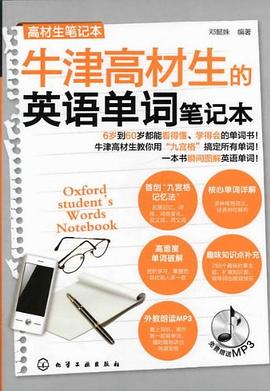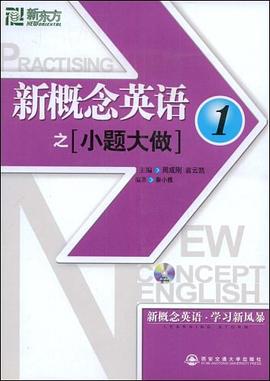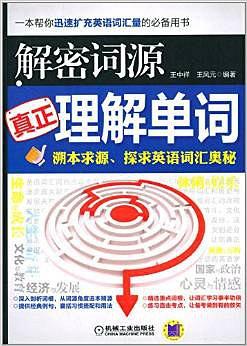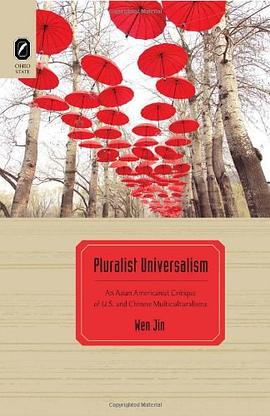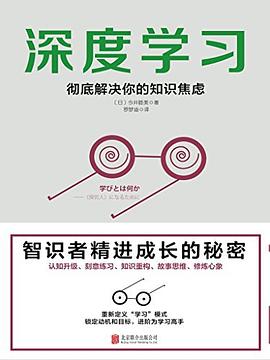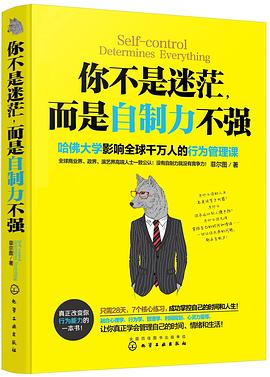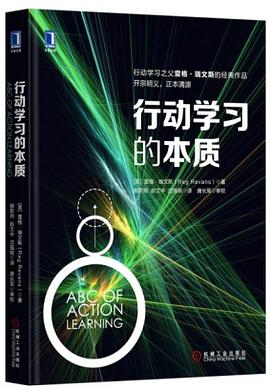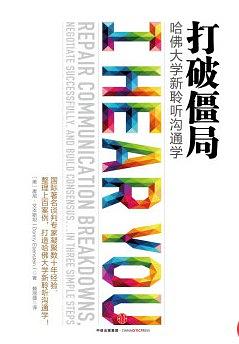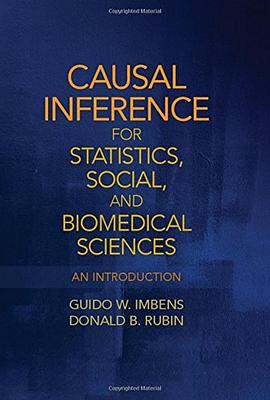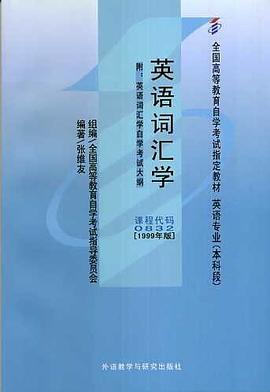

具体描述
English Lexicology
CONTENTS
Introduction
Chapter 1 Basic Concepts of Word and Vocabulary
1.1 What Is a Word
1.2 Sound and Meaning
1.3 Sound and Form
1.4 Vocabulary
1.5 Classification of Words
1.5.1 Basic Word Stock and Nonbasic Vocabulary
1.5.2 Content Words and Functional Words
1.5.3 Native Words and Borrowed Words
Chapter 2 The Development of the English Vocabulary
2.1 The Indo-European Language Family
2.2 A Historical Overview of the English Vocabulary
2.2.1 Old English (450-1150)
2.2.2 Middle English (1150-1500)
2.2.3 Modern English (1500-up to now)
2.3 Growth of Present-day English Vocabulary
2.4 Modes of Vocabulary Development
Chapter 3 Word Formation One
3.1 Morphemes
3.2 Allomorphs
3.3 Types of Morphemes
3.3.1 Free Morphemes
3.3.2 Bound Morphemes
3.4 Root and Stem
Chapter 4 Word Formation Two
4.1 Affixation
4.1.1 Prefixation
4.1.2 Suffixation
4.2 Compounding
4.2.1 Characteristics of Compounds
4.2.2 Formation of Compounds
4.3 Conversion
4.4 Blending
4.5 Clipping
4.6 Acronymy
4.6.1 Initialisms
4.6.2 Acronyms
4.7 Back-formation
4.8 Words from Proper Names
Chapter 5 Word Meaning
5.1 The Meaning of “Meaning”
5.1.1 Reference
5.1.2 Concept
5.1.3 Sense
5.2 Motivation
5.2.1 Onomatopoeic Motivation
5.2.2 Morphological Motivation
5.2.3 Semantic Motivation
5.2.4 Etymological Motivation
5.3 Types of Meaning
5.3.1 Grammatical Meaning and Lexical Meaning
5.3.2 Conceptual Meaning and Associative Meaning
Chapter 6 Sense Relations and Semantic Field
6.1 Polysemy
6.1.1 Two Approaches to Polysemy
6.1.2 Two Processes of Development
6.2 Homonymy
6.2.1 Types of Homonyms
6.2.2 Origins of Homonyms
6.2.3 Differentiation of Homonyms from Polysemant
6.2.4 Rhetoric Features of Homonyms
6.3 Synonymy
6.3.1 Definition of Synonyms
6.3.2 Types of Synonyms
6.3.3 Sources of Synonyms
6.3.4 Discrimination of Antonyms
6.4 Antonymy
6.4.1 Types of Antonyms
6.4.2 Some of the Characteristics of Antonyms
6.4.3 The Use of Antonyms
6.5 Hyponymy
6.6 Semantic Field
Chapter 7 Changes in Word Meaning
7.1 Types of Changes
7.1.1 Extension
7.1.2 Narrowing
7.1.3 Elevation
7.1.4 Degradation
7.2 Causes of Changes
7.2.1 Extra-linguistic Factors
7.2.2 Linguistic Factors
Chapter 8 Meaning and Context
8.1 Types of Context
8.1.1 Extra-linguistic Context
8.1.2 Linguistic Context
8.2 The Role of Context
8.2.1 Elimination of Ambiguity
8.2.2 Indication of Referents
8.2.3 Provision of Clues for Inferring Word-meaning
Chapter 9 English Idioms
9.1 Characteristics of Idioms
9.1.1 Semantic Unity
9.1.2 Structural Stability
9.2 Classification of Idioms
9.2.1 Idioms Nominal in Nature
9.2.2 Idioms Adjectival in Nature
9.2.3 Idioms Verbal in Nature
9.2.4 Idioms Adverbial in Nature
9.2.5 Sentence Idioms
9.3 Use of Idioms
9.3.1 Stylistic Features
9.3.2 Rhetorical Features
9.3.3 Variations of Idioms
Chapter 10 English Dictionaries
10.1 Types of Dictionaries
10.1.1 Monolingual and Bilingual Dictionaries
10.1.2 Linguistic and Encyclopedic Dictionaries
10.1.3 Unabridged, Desk and Pocket Dictionaries
10.1.4 Specialized Dictionaries
10.2 Use of Dictionaries
10.2.1 Choice of Dictionaries
10.2.2 Content of the Dictionary
10.2.3 Use of the Dictionary
10.3 Three Good General Dictionaries
10.3.1 Longman Dictionary of Contemporary English (LDCE) New Edition (1987)
10.3.2 Collins COBUILD English Language Dictionary (CCELD) (1987)
10.3.3 A Chinese-English Dictionary (Revised Edition ) (CED ) (1995)
Suggested Answers
Reference Books
作者简介
目录信息
读后感
评分
评分
评分
评分
用户评价
作为一名对语言学充满好奇的读者,我一直在寻找能够系统性地梳理英语词汇的著作,而《英语词汇学》无疑满足了我所有的期待。这本书的结构设计非常合理,从基础的构词法到复杂的语义分析,再到词汇的社会语言学层面,层层递进,逻辑严谨。最让我印象深刻的是关于词汇习得(vocabulary acquisition)的章节。书中探讨了不同年龄段、不同背景的学习者如何有效地学习和记忆词汇,并提供了许多实用的策略和技巧。这对我这位非母语学习者来说,简直是“及时雨”。作者并没有停留在理论层面,而是结合了心理学和认知科学的研究成果,解释了词汇记忆的原理,以及如何利用多种感官和学习方法来加深记忆。例如,书中提到的“间隔重复”(spaced repetition)和“联想记忆法”(mnemonics)等技巧,我都尝试运用到了我的日常学习中,效果显著。我曾花费大量时间死记硬背单词表,收效甚微,但这本书指导我如何更科学、更高效地进行词汇学习,让我事半功倍。此外,书中对“语域”(register)和“语体”(style)的区分与讲解,也让我意识到,同一个词在不同的语境下,其使用方式和隐含意义也会有所不同。这对于我理解和运用更高级的英语表达非常有帮助。这本书让我从“量”的积累转向“质”的提升,真正掌握了英语词汇的精髓。
评分我一直觉得,语言是活的,词汇更是如此,它们随着时代的发展而不断变化、生长。这本书《英语词汇学》恰恰抓住了这一点,它不仅仅是一本工具书,更像是一位博学的向导,带领读者穿越英语词汇的广阔森林。书中对词汇语义变化的探讨尤其令我着迷,作者通过大量的例证,生动地展示了词语意义如何随着历史、文化和社会的发展而发生演变。比如,一个词的意义可能从褒义变为贬义,或者从具体含义发展出抽象含义。书中关于“nice”这个词的演变过程就让我印象深刻,从最初的“愚蠢的、无知的”到后来的“细微的、精确的”,再到如今我们熟知的“好的、令人愉快的”,这种语义的流变充满了历史的韵味。此外,书中对词汇搭配(collocation)的讲解也极具价值。我过去常常犯一些搭配错误,导致我的英语表达不够地道。这本书通过分析哪些词语倾向于搭配使用,以及这种搭配的习惯性原因,让我对英语的“语感”有了更深的认识。例如,知道“make a decision”比“do a decision”更常用,以及“heavy rain”比“big rain”更自然,这些细节的讲解,让我的英语表达瞬间提升了一个档次。它教会我如何更准确、更地道地使用英语词汇,让我的语言表达更加丰富和有表现力。这本书让我看到了英语词汇的生命力和文化内涵,也让我对语言学习有了更深层次的理解,它不仅是学习工具,更是一种思维方式的启迪。
评分我一直认为,好的学习资料不应该仅仅是知识的堆砌,更应该是一种思想的启迪。《英语词汇学》正是这样一本让我受益匪浅的书。它不仅仅教授我如何记忆单词,更重要的是,它引导我去思考词汇是如何产生、如何演变、以及如何在不同的语境下产生不同的影响。书中关于“词汇的社会学因素”(sociolinguistics of vocabulary)的章节,让我耳目一新。作者通过分析不同社会群体、不同地区、不同时代的人们如何使用词汇,展示了词汇背后隐藏的社会文化信息。例如,书中讨论了俚语(slang)和俗语(idiom)的形成和传播,以及它们如何反映特定群体的身份认同和文化特色。这让我意识到,词汇不仅仅是沟通的工具,更是社会文化的重要载体。我过去在学习英语时,常常忽略了语言的社会文化维度,导致我的表达有时显得生硬或不够地道。这本书则弥补了这一不足,它教会我如何从更广阔的视角去理解和运用英语词汇,如何让我的语言表达更具文化底蕴和人文关怀。书中对“语码转换”(code-switching)现象的分析,也让我对跨文化交流有了更深的认识。总而言之,这本书让我看到了英语词汇的无限魅力,它不仅仅是一门学科,更是一种文化的传承和社会的映射。
评分我曾经以为,学习英语词汇就是背单词,直到我读了《英语词汇学》。这本书颠覆了我对词汇学习的认知。它不仅仅是关于“是什么”,更是关于“为什么”和“如何”的学习。我尤其喜欢书中对词汇的“功能性”分析,它解释了词汇在交流中扮演的各种角色,比如指示、描写、情感表达等等。书中对“同义词”和“近义词”的辨析尤其精彩。我一直觉得很多同义词可以互换使用,但这本书让我明白,即使是意思相近的词,它们在语体、感情色彩、搭配习惯等方面也存在微妙的差异。例如,“thin”、“slim”、“skinny”和“lean”这几个词,虽然都表示“瘦”,但“skinny”往往带有负面含义,形容瘦得不健康,而“lean”则常用于形容肌肉结实、健康瘦。理解了这些细微的差别,我的英语表达立刻变得更加精确和生动。书中还介绍了“反义词”和“对义词”的分类,以及它们在构建语言张力和表达对比方面的作用。通过对这些词汇关系的深入理解,我能够更好地把握文章的逻辑和作者的意图。这本书让我看到,词汇学习不仅仅是记忆,更是一种对语言精妙之处的品味和运用。它提升了我对英语语言的敏感度,让我在阅读和写作时能够更自如地选择最恰当的词汇,从而使我的表达更具说服力和感染力。
评分很少有书籍能像《英语词汇学》这样,在严谨的学术分析中注入如此生动和有趣的内容。我并非语言学专业出身,但这本书的语言风格和叙述方式却让我倍感亲切,丝毫不觉得枯燥。书中关于“词汇的语义场”(semantic fields)的讲解,让我对词汇的意义关系有了更清晰的认识。作者将意思相近的词汇归入同一个语义场,并分析它们在语义场中的位置和相互关系,这极大地帮助我理解词汇之间的细微差别。例如,关于“食物”的语义场,包含了“eat”、“consume”、“devour”、“gobble”等词,它们虽然都与“吃”有关,但却表达了不同的程度、方式和情感。通过对这些词汇在语义场中的对比分析,我能够更准确地选择最能表达我意图的词汇,使我的语言表达更加精炼和富有层次。书中还介绍了“指示性词汇”(demonstrative vocabulary)和“描述性词汇”(descriptive vocabulary)的区分,以及它们在构建语篇中的作用。这让我明白了,并非所有的词汇都只是为了传递信息,有些词汇更是为了营造氛围、激发情感。这本书不仅提升了我词汇的辨析能力,更重要的是,它教会了我如何更巧妙、更有效地运用词汇来达到我的沟通目的。
评分从我拿到《英语词汇学》这本书的那一刻起,我就被它严谨的学术态度和深刻的洞察力所吸引。作者并非简单地罗列词汇,而是将英语词汇置于历史、文化、心理和社会的广阔背景下进行剖析。我尤其欣赏书中关于“词汇的认知模型”(cognitive models of vocabulary)的探讨。它解释了我们大脑是如何处理和储存词汇信息,以及如何通过建立词汇之间的联系来提升记忆效率。书中提出的“概念域”(conceptual domains)和“类比推理”(analogical reasoning)等概念,让我对词汇的意义构建有了全新的认识。例如,作者通过分析“time”这个概念域下的各种词汇,如“moment”、“instant”、“period”、“era”等,展示了我们如何通过不同的词汇来精确地描述时间的不同方面。这让我意识到,词汇学习不应是孤立的记忆,而应该是对概念的理解和对意义的建构。书中还详细介绍了“词汇网络”(lexical networks)的概念,即词汇之间通过意义、形式或功能上的联系而形成的网络结构。理解了这种网络关系,我便能够更有效地将新词融入已有的知识体系中,从而实现“以点带面”的学习效果。这本书让我从“死记硬背”的误区中走出来,学会了如何更聪明、更有效地进行词汇学习,极大地提升了我学习英语的效率和质量。
评分《英语词汇学》这本书,对于我这样一个在英语学习道路上走了不少弯路的人来说,简直是一场及时雨。我之前总是陷入“为了背单词而背单词”的怪圈,对词汇的学习充满了抗拒和无力感。但这本书却让我看到了词汇学习的另一番景象——那就是理解其内在的逻辑和生命力。我非常欣赏书中对于“词族”(word families)的梳理和讲解。通过将具有相同词根的单词归类,并解释它们之间如何通过添加不同的前缀和后缀演变出不同的含义,我仿佛获得了进入词汇宝藏的“钥匙”。例如,作者详细分析了“spect-”这个词根,它意为“看”,由此引申出了“inspect”(检查)、“spectate”(观看)、“spectacle”(奇观)、“perspective”(视角)等一系列词汇。理解了词根的意义,这些词汇的含义便不再是孤立的点,而是相互连接的网络,记忆起来自然轻松许多。更令我惊喜的是,书中还探讨了词汇的“语用”(pragmatics)层面,即词汇在实际交流中的功能和语境。这让我明白,选择一个词不仅仅是为了表达意思,更是为了传递特定的语气、态度和情感。通过学习书中关于“含蓄表达”(implicature)和“语用标记”(discourse markers)的例子,我开始更注重我的语言选择如何影响听话者的理解和感受。这本书让我从一个被动记忆者变成了一个主动探索者,让我真正爱上了英语词汇的学习。
评分《英语词汇学》这本书,对我来说,不仅仅是关于词汇的知识,更是一种学习方法的革新。我一直以来都苦于词汇记忆的低效和遗忘的快速。但这本书提供了一种全新的视角,让我从“死记硬背”的泥潭中解脱出来。我尤其欣赏书中对“词汇学习策略”(vocabulary learning strategies)的系统性介绍。作者不仅列举了各种有效的学习方法,如词根词缀法、联想记忆法、语境记忆法等,更重要的是,它指导我如何根据自己的学习特点选择合适的策略,并将其有效地运用到实践中。例如,书中关于“上下文学习”(learning in context)的论述,让我明白了孤立地记忆单词是多么的低效。我开始尝试在阅读、听力等过程中主动捕捉新词,并理解它们在具体语境中的含义和用法。这种学习方式不仅大大提高了我的词汇记忆效率,更重要的是,它让我将词汇的学习融入到了真实的语言运用中,从而实现了“学以致用”。此外,书中还探讨了“词汇学习中的错误分析”(error analysis in vocabulary learning)以及如何从中吸取教训。这让我意识到,犯错并不可怕,可怕的是不知道如何从错误中学习。这本书让我从一个被动的学习者,变成了一个积极的探索者,我开始主动地去发现和解决自己在词汇学习中遇到的问题,整个学习过程变得更加主动和富有成效。
评分在我看来,一本真正优秀的语言学习书籍,应该能够激发起读者对语言本身的热情。《英语词汇学》做到了这一点。它不仅仅是一本工具书,更像是一次精彩的语言探险。书中对“词汇的演变史”(history of vocabulary evolution)的梳理,让我惊叹于英语词汇的丰富性和包容性。作者通过追溯词汇的来源,如拉丁语、日耳曼语、法语等对英语词汇的影响,展示了英语作为一门混合语言的独特魅力。我特别喜欢书中对“借词”(loanwords)的分析,比如“rendezvous”(法语)、“kindergarten”(德语)、“tsunami”(日语)等,这些词汇的引入不仅丰富了英语的表达,也折射出不同文化之间的交流和融合。书中还探讨了“词汇的创新”(vocabulary innovation)现象,比如新词的产生、旧词的新用等,这让我看到了语言的生命力和创造力。它让我意识到,学习英语词汇不仅仅是学习现有的词汇,更是对语言发展趋势的洞察和参与。这本书让我对英语词汇的理解不再停留在表面,而是深入到了其历史根源和文化演变之中。它不仅提升了我的词汇量,更重要的是,它让我对英语这门语言产生了更深厚的感情和更持久的学习动力。
评分这本《英语词汇学》简直是词汇学习的“天书”,我原本是个对英语单词记忆感到无比头疼的人,总是陷入“背了又忘,忘了又背”的恶性循环。但是,这本书的出现彻底改变了我的学习方式。它不是简单地罗列单词,而是深入浅出地剖析了英语词汇的构成、演变和使用规律。我最喜欢的是其中关于词根、词缀的讲解,这些“万能钥匙”一旦掌握,就能触类旁通,瞬间解锁一大批新词。例如,作者详细阐述了“pre-”、“re-”等前缀的含义,并列举了大量以这些前缀开头的单词,如“predict”、“prefix”、“remake”、“recall”。通过理解这些前缀在不同单词中的作用,我不仅记住了单词本身,更深刻理解了它们的含义,甚至能够根据上下文推测生词的意义。此外,书中还介绍了同源词、派生词、复合词等多种构词法,让我从宏观上认识到英语词汇的丰富性和系统性。以前我只是死记硬背,现在则能举一反三,看到一个新词,我首先会尝试分析它的构成,这极大地提升了我的学习效率。更令人惊喜的是,书中还穿插了许多有趣的词源故事,比如“sandwich”这个词的由来,了解这些典故不仅能让学习过程充满乐趣,更能加深对单词的记忆。这本书让我意识到,词汇学习不是枯燥的任务,而是一场充满智慧和探索的旅程。它让我从被动接受者转变为主动探索者,真正享受学习英语的乐趣。我强烈推荐所有渴望提升英语词汇量和理解能力的朋友阅读此书,它绝对是你的不二之选。
评分正在学习中
评分考完stylistics 以为天下无敌的我怎料到接下来还有lexicology 我一点也不要知道 morphemes和allomorph的关系以及它可分为free morphemes 和bound morphemes,bound morphemes又有bound root和affix之分,affix还有inflectional affix和derivational affix两种类型 而derivational又可分出prefix和suffix 哼!
评分学术 有没有?
评分没有落下一节课,恩恩~
评分1999年出版……是有多落后!不过好歹增加了一点词汇方面的了解,不过仅限于了解因为有点记!不!住!相对于其他几本书这本算是比较好读的,可能是因为词根比较有趣~ 嘛,作为第一本从头看到尾的酥,好好MARK一下(后头的dictionaries reference当然没有看~
相关图书
本站所有内容均为互联网搜索引擎提供的公开搜索信息,本站不存储任何数据与内容,任何内容与数据均与本站无关,如有需要请联系相关搜索引擎包括但不限于百度,google,bing,sogou 等
© 2026 book.wenda123.org All Rights Reserved. 图书目录大全 版权所有

